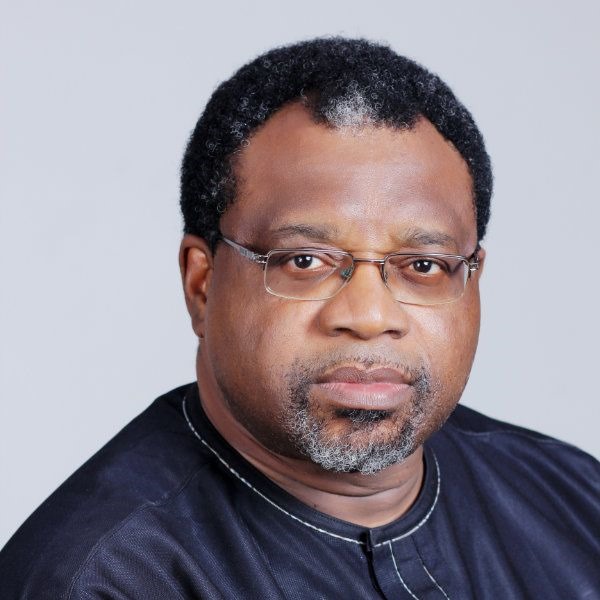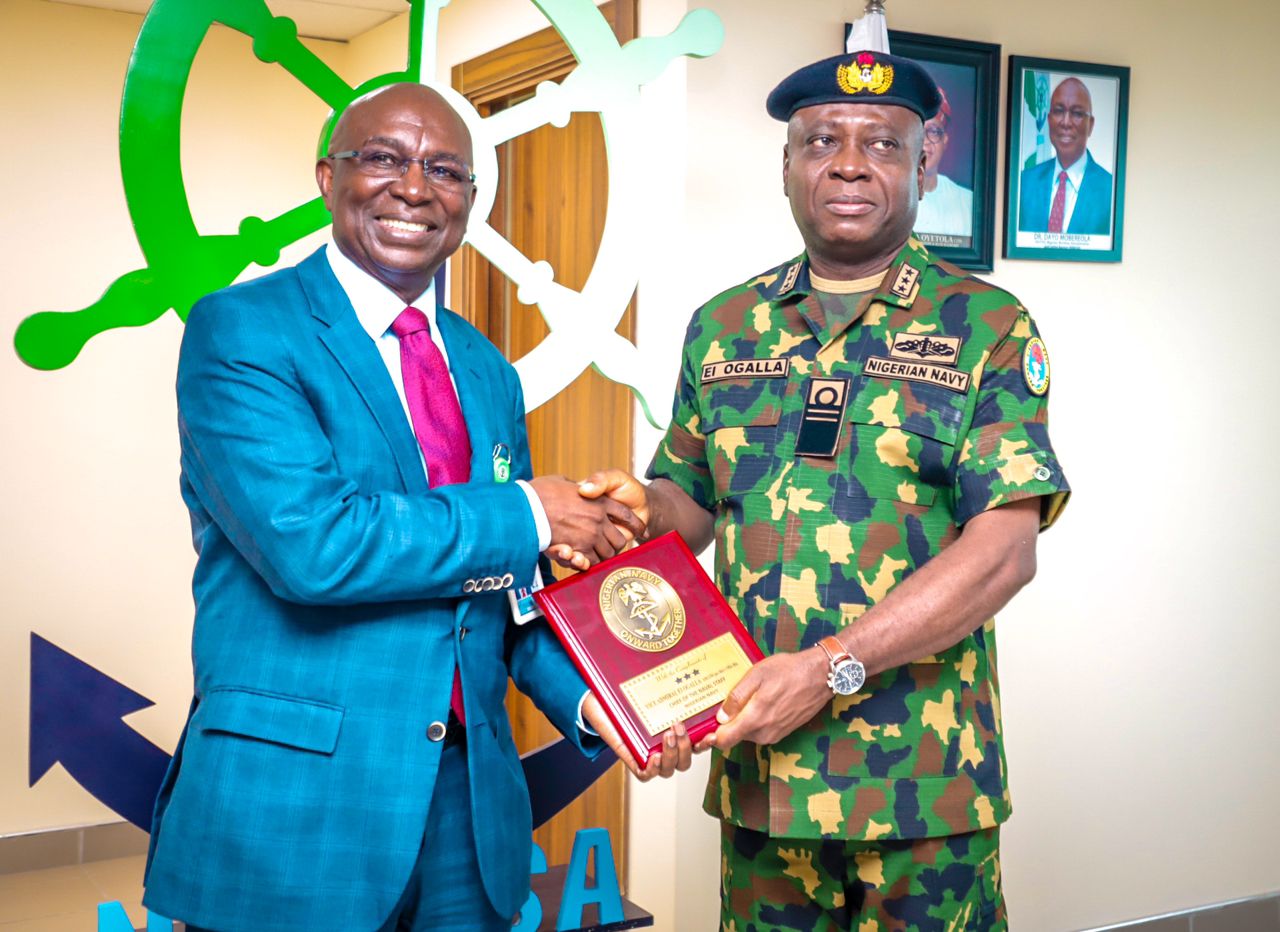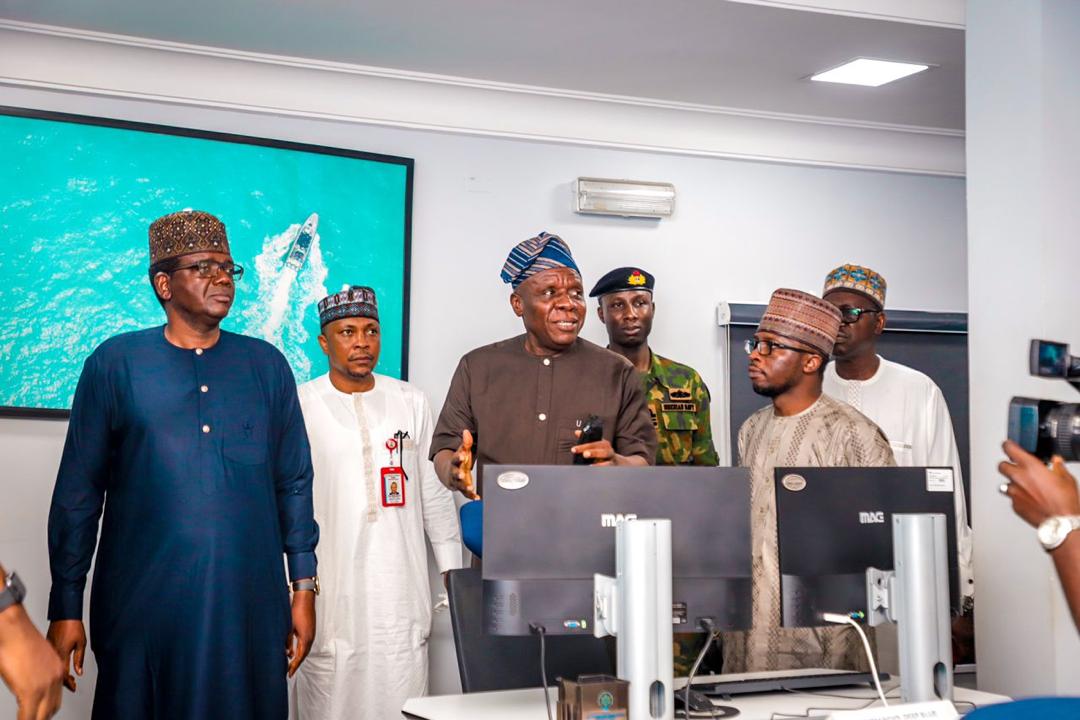Maritime
Former Nimasa Boss Takes Blame for Failure of CVFF

LAGOS – The immediate past Director General of the Nigerian Maritime Administration and Safety (NIMASA) Barrister Temisan Omatseye has taken responsibility for the failure of the Cabotage Vessel Financing Fund (CVFF).
Speaking at the recently concluded House of Representative Ad-hoc Committee on the investigation of the CVFF, Omatseye said that he was a party to the drawing up of the guidelines which according to him “is totally flawed”.
He stated that it was during his tenure that the process of identifying and engaging Primary Lending Institutions (PILs) was done adding that the mistakes of the past is now hunting the Fund.
 “As CEO, I do take responsibility for the document and cannot make excuses for it though as I write this paper and with the benefit of hindsight I do find the document to be totally flawed.
“As CEO, I do take responsibility for the document and cannot make excuses for it though as I write this paper and with the benefit of hindsight I do find the document to be totally flawed.
“As the CEO of an agency like NIMASA faced with over 29 functions and duties, it is easy for one not to pay as much attention to certain areas as it is not humanly possible to do everything and therefore, it was necessary to delegate most especially with the issues as it relates to the selection of the PLIs being that the organo-gram or structure of the Agency allows for there to be an Executive Director whose functions is to deal with all that relates to Cabotage and an Executive Director Finance who should in all ways assist the Executive Director Cabotage on issues relating to Financial transaction .
“We failed to see some of the flaws which are now haunting the disbursement process and may further lead to situation that if disbursement not does occur then the likely hood of making any achievable progress as the Cabotage Act had envisaged will be wishful thinking.
“Once the guidelines have been met in the selection of the Participating Lending InstitutionsPLIs and PLIs given their agreement then, it was meant for PLIs to begin the process of engagement of the indigenous ship owners for which the loan is to be given to.
“In as much as the banks are able to deal with issues relating ‘to the financial wherewithal of the companies that are seeking to get the facility, NIMASA in all intent and purpose was meant to set the technical criteria.
– VANGUARD
Maritime
NIMASA DG Mobereola Mourns Ferdinand Agu

The Director General of the Nigerian Maritime Administration and Safety Agency (NIMASA), Dr. Dayo Mobereola, has described the death of Architect Ferdinand Agu, former Director General of the defunct National Maritime Authority (NMA), as a rude shock.
Reacting to Agu’s sudden passing this weekend, the NIMASA DG described it is a significant loss to Nigeria, the maritime community, and NIMASA in particular.
He said, “I am deeply saddened to hear of the passing of Arc. Ferdinand Agu, a former Director General of NMA. He left an indelible impression on me within the short time we shared during my first stakeholder engagement just last month.
“I had hoped to engage him more often, to tap into his wealth of experience for the collective interest of every Nigerian. Alas, death has denied us this privilege.
“Agu’s legacy of dedication and excellence will continue to inspire us all. We will miss his wisdom, kindness, and unwavering dedication to improving our maritime industry.
“My thoughts and prayers are with his family during this difficult time. May his soul rest in peace.”
Maritime
MARITIME SECURITY: Nigerian Navy Pledges Support For NIMASA

The Chief of the Naval Staff, Vice Admiral Emmanuel Ogalla has paid a working visit to Nigerian Maritime Administration and Safety Agency (NIMASA), as part of efforts to deepen the cooperation between the Navy and the Agency for sustainable security in the Nigerian maritime domain.
Vice Admiral Ogalla acknowledged efforts of the Agency in implementing both national and international regulatory instruments to improve safety and security in the maritime domain, adding that the Nigerian Navy under his leadership was committed to supporting NIMASA to succeed.
He said, “I want to appreciate NIMASA for the collaboration with the Nigerian Navy which is to achieve a common goal of better securing the Nigerian maritime domain, thus promoting an enabling environment for business to thrive with a multiplier effect of improved contributions to the Gross Domestic Product from the maritime industry.
“Our role as prescribed by the Armed Forces Act is for the Navy to coordinate the enforcement of all marital laws associated with Nigeria. We will support you at NIMASA to succeed”.
The Chief of the Naval Staff also commended the Agency’s implantation of the Cabotage Act and the C4i center of the Deep Blue Project.
“I acknowledge the efforts of NIMASA in the implementation of the Cabotage Law for the benefit of indigenous players in the industry. We will also improve our support so the Cabotage regime can succeed.
“The NIMASA C4i center, which is a maritime domain awareness facility, is useful to the Nigerian Armed Forces including the Nigerian Police. I will visit the facility today and our focus is better cooperation and information sharing.”
On his part, the Director General, NIMASA, Dr Dayo Mobereola acknowledged the role the Nigerian Navy has played over the years in supporting NIMASA to implement her mandates.
Dr. Mobereola used the opportunity to assure the Navy of the continuous support of the Agency, noting that it will be to the overall benefit of the country.
He also assured the CNS that the Agency would look into more areas of partnership with the Navy, while also seeing the possibility of reviewing the existing Memorandum of Understanding (MoU) between the Navy and NIMASA.
“Your visit today personally to NIMASA is a confirmation of your commitment to the NIMASA/Nigerian Navy collaboration. I must acknowledge the role of the Nigerian Navy in the NIMASA journey so far. Nigeria’s attainment of zero piracy report in recent times is a result of the support of the Navy. Security is key to unlocking the nation’s maritime potentials, as a well-secured maritime domain will be a catalyst to attract foreign investment into Nigeria. On the MoU, we are with you in reviewing it and making it more effective taking into consideration the reality on ground. We want to sustain our zero piracy status”, the DG said.
The NIMASA boss also hailed the recent addition of 20 nautical miles to Nigeria’s Exclusive Economic zone, stating that it calls for more responsibility for both the Navy and the Agency.
Maritime
Maritime Security: Integrating NIMASA C4I, Naval Falcon Eye A Top Priority – Matawalle

Minister of State, Defence, Hon. Bello Matawalle has declared the Federal Government’s commitment to integrating the operations of the Command Control Computer Communication Information System of the Nigerian Maritime Administration and Safety Agency (NIMASA), and the surveillance facility of the Nigerian Navy (NN) known as the Falcon eye system for the security of the Nigerian Maritime space to engender economic prosperity.
Matawalle stated this after a working visit to the NIMASA C4i center in Kirikiri this weekend to inspect the operational model of the facility.
He said that Nigeria would benefit much more if all Agencies of Government could synergize seamlessly and improve information sharing amongst one another.
He called for enhanced synergy between the NN and the NIMASA especially with the C4i system and the falcon eye which are platforms that would massively complement each other.
In his words, “I am delighted at what I have seen today at NIMASA C4i Center and our goal is to see how it can be integrated with the Falcon eye of the Nigeria Navy because all we need is to secure our maritime domain, therefore the NAVY and the NIMASA must work together to create the desired maritime environment for a prosperous maritime economy”.
Speaking further, the Minister noted, “We want them to work together and to be integrated so that they will be communicating with each other. If the Falcon eye and C4i are communicating effectively, our maritime space will be devoid of security challenges and this will boost the courage of both local and foreign investors in the sector”.
In his remarks, Director General, NIMASA, Dr Dayo Mobereola expressed delight at the visit of the Hon Minister stating that effective synchronization of the NIMASA C4i and the Falcon Eye of the NN would add to the strides of the FG in reaping the benefits of the Blue economy.
The NIMASA DG, represented by the Agency’s Executive Director Operations, Engr Fatai Adeyemi said improved information sharing between the NIMASA and the NN would enhance capability of the security agencies in curbing maritime crimes in Nigerian waters.
“We are glad to receive the Honorable Minister of State, Defence at NIMASA C4i today. This is simply a show of commitment of this administration to effective collaboration amongst all organs of government to achieve a common goal and in this instance, maritime security.
“You heard what the Honorable Minister said about integrating the C4i with the Falcon Eye. I believe that’s a step in the right direction. And I’m sure by the time that is done you know, it’s going to give us a more secured marine environment,” he said.
The NIMASA C4i center, with manpower composition from all security services in Nigeria is the central nerve for the Deep Blue Project with the use of modern technology to achieve security information sharing real time amongst all the Deep Blue assets which include Special mission Vessels, helicopters, aircraft, fast intervention vessels and specially purpose built armored vehicles.
C4i, is an acronym for Command Control Computer Communication Information System is the central nerve serving as the base for situational intelligence gathering, synchronizing situational security reports on land, air and the maritime domain in Nigeria and analyzing the same in real time for the Deep Blue Project.
Meanwhile, the Falcon eye system of the Nigerian Navy is a state-of-the-art surveillance facility that incorporates various sensors located along the nation’s enormous coastline, such as Radars, long range Electro Optic Systems with thermal or night vision capability, Automatic Identification System receivers, Weather Stations and marine Very High Frequency Radios for communication.
The integration of these sensors into the Falcon Eye system generates a real-time situational awareness of the activities of vessels in Nigerian maritime domain and some selected parts in the Gulf of Guinea.









